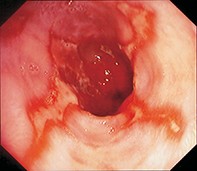Peer Reviewed
Feature Article Paediatrics
GORD in infants and children: when to investigate and when to treat?
Abstract
The treatment of gastro-oesophageal reflux disease (GORD) should be based on the clinical manifestations and possible complications. To avoid over-treatment, it is important to distinguish between uncomplicated gastro-oesophageal reflux and GORD, particularly in infants.
Key Points
- Infants and children commonly present to GPs with gastro-oesophageal reflux (GOR). It is important to distinguish between uncomplicated GOR and gastro-oesophageal reflux disease (GORD).
- Minor GOR in otherwise well infants is considered physiological. Children with GORD often present with extra-oesophageal symptoms, including aversive feeding behaviours, failure to thrive or respiratory manifestations, as well as the ‘classic’ symptoms such as regurgitation, epigastric pain and heartburn.
- GORD in infants may be caused by cow’s milk protein intolerance. Other conditions such as eosinophilic oesophagitis should be considered in the differential diagnoses of GORD.
- The treatment of GORD should be based on the clinical manifestations and possible complications. It is important to establish whether the degree of GOR in each patient requires medical treatment or not.
- The prognosis of GORD in infancy is excellent, and symptoms usually remit by 12 to 18 months of age.
Purchase the PDF version of this article
Already a subscriber? Login here.

